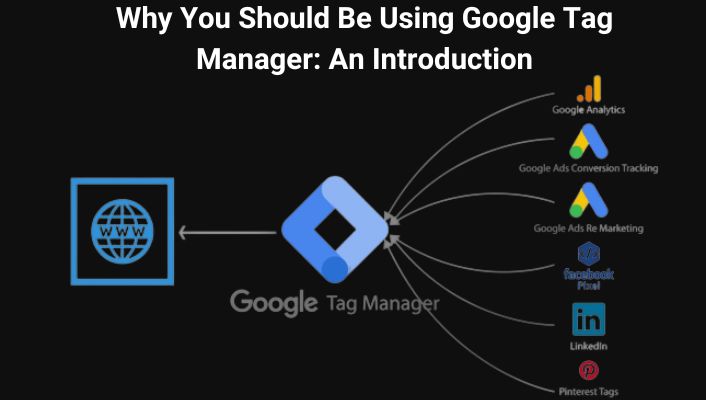Google Tag Manager (GTM) is a powerful tool that allows marketers and analysts to manage and track website tags and codes without the need for technical knowledge or the help of a developer. In this article, we will explore what Google Tag Manager is and why marketers and analysts should use it.
What are Tags and Why They are Important
Google Tag Manager is a free tool offered by Google that enables marketers to manage and deploy marketing and analytics tags on their website. Tags are snippets of code that track website activity, such as page views, clicks, and form submissions. These tags help marketers and analysts understand how visitors are interacting with their website, which pages are performing well, and where improvements can be made.
Check your Page Size with our Size Scanner Tool
Before Google Tag Manager: The Challenges of Adding Tracking Codes
Before the introduction of GTM, adding tracking codes to a website was a time-consuming and technical task that required the help of a developer. With GTM, marketers and analysts can now manage and deploy tags without needing to involve a developer, saving time and resources.
How Google Tag Manager Works
GTM works by placing a container code on your website that serves as a middleman between your website and the third-party tools you want to track. Once the container code is installed, you can use the GTM interface to manage and deploy tags.
Benefits of Using Google Tag Manager
One of the main benefits of GTM is that it allows marketers to manage all their tags in one place. This means that if you need to make changes to your tags or add new tags, you can do so without having to go through the time-consuming process of contacting a developer. Instead, you can make the necessary changes within the GTM interface and deploy them immediately.
Controlling Tags with GTM
GTM also provides marketers and analysts with more control and flexibility over their website tags. For example, you can use GTM to trigger tags based on specific user interactions, such as clicks or form submissions. This allows you to track more granular data and get a better understanding of how users are interacting with your website.
Testing and Debugging with GTM
In addition, GTM allows marketers to test and debug their tags before deploying them to their website. This ensures that tags are working correctly and that the data being collected is accurate. This is particularly important for larger websites with complex tracking requirements, where the risk of errors and inaccuracies is higher.
Another benefit of GTM is that it reduces your dependency on developers. While developers will still be required for more complex tasks, such as custom tag implementation or website development, GTM allows marketers and analysts to take control of their tracking and analytics needs without needing to involve a developer for every small change.
Integrating with Third-Party Tools and Platforms
GTM is also an incredibly powerful tool that can be used to integrate with a wide range of third-party tools and platforms. For example, GTM can be used to track conversions in Google Ads, retargeting in Facebook Ads, and user behavior in Google Analytics. This allows marketers to consolidate their tracking and analytics needs into one place, reducing the need to switch between different tools and platforms.
Resources Available for Learning GTM
Despite its many benefits, GTM can be a complex tool to use, particularly for those without technical knowledge. Fortunately, there are many resources available to help marketers and analysts learn how to use GTM effectively. Google offers a range of free resources, including documentation, tutorials, and a help center. There are also many third-party resources available, such as blogs, courses, and forums.
Why GTM is a Valuable Addition to Your Marketing Toolkit
Google Tag Manager is a powerful tool that allows marketers and analysts to manage and deploy website tags and codes without the need for technical knowledge or the help of a developer. GTM provides marketers with more control and flexibility over their tracking and analytics needs, while also reducing their dependency on developers. While GTM can be a complex tool to use, the benefits it offers make it a valuable addition to any marketer’s toolkit.







